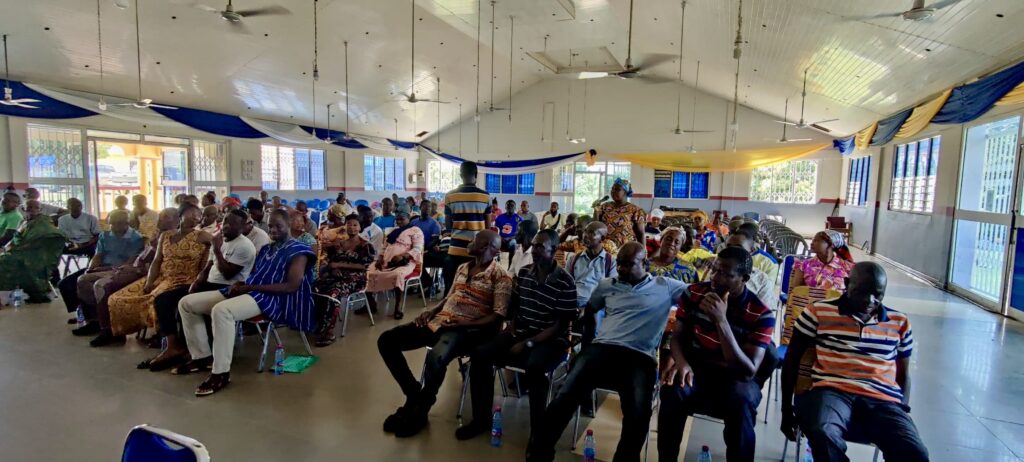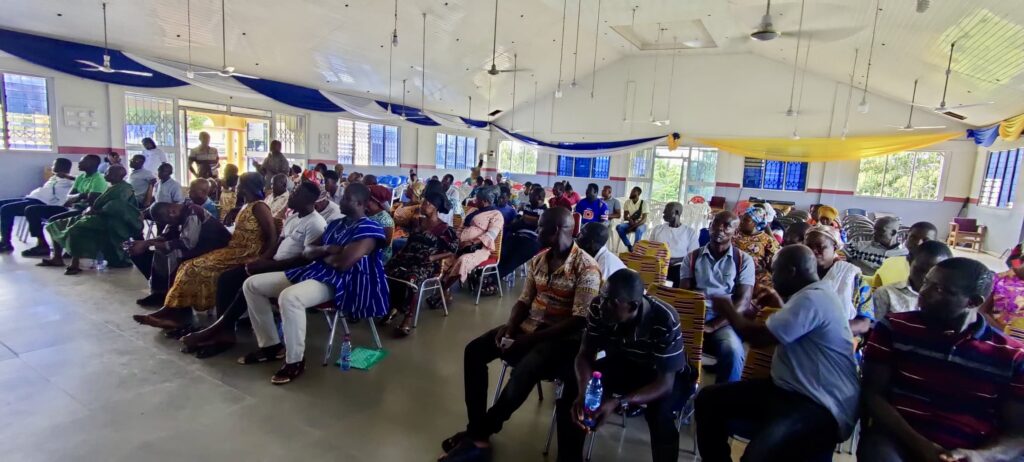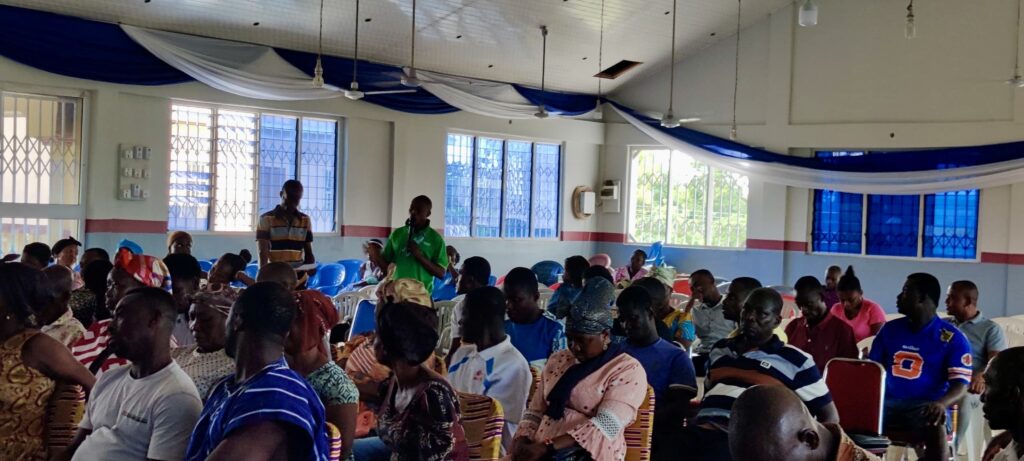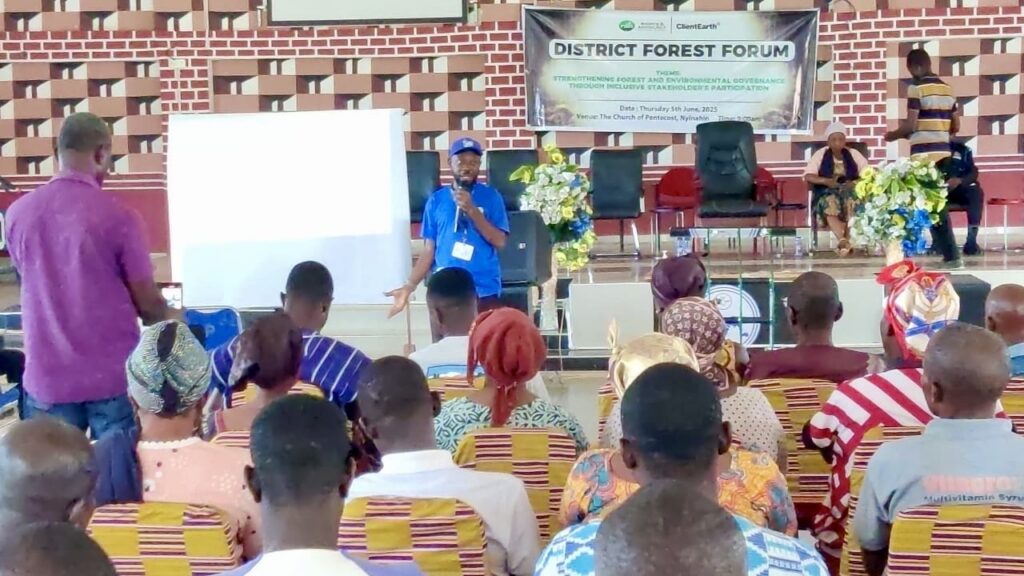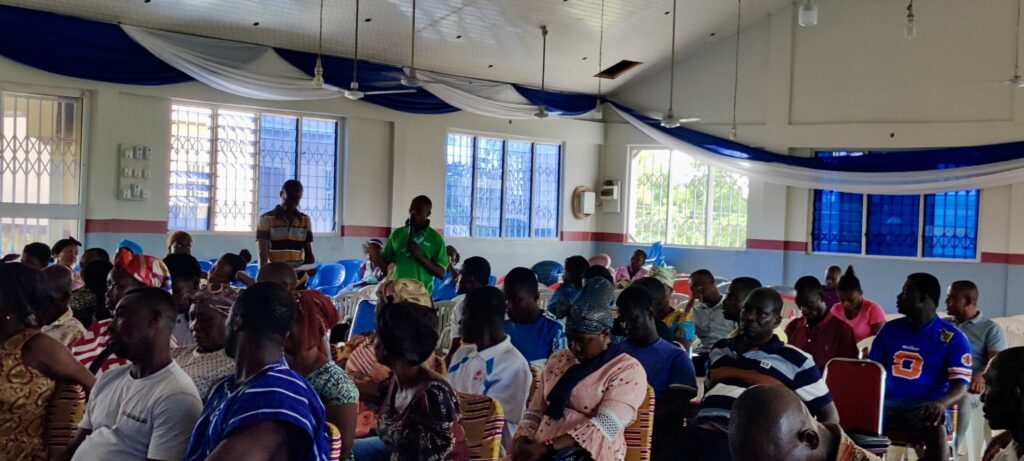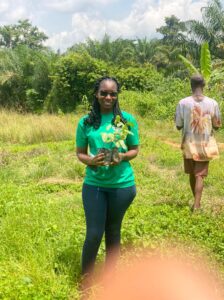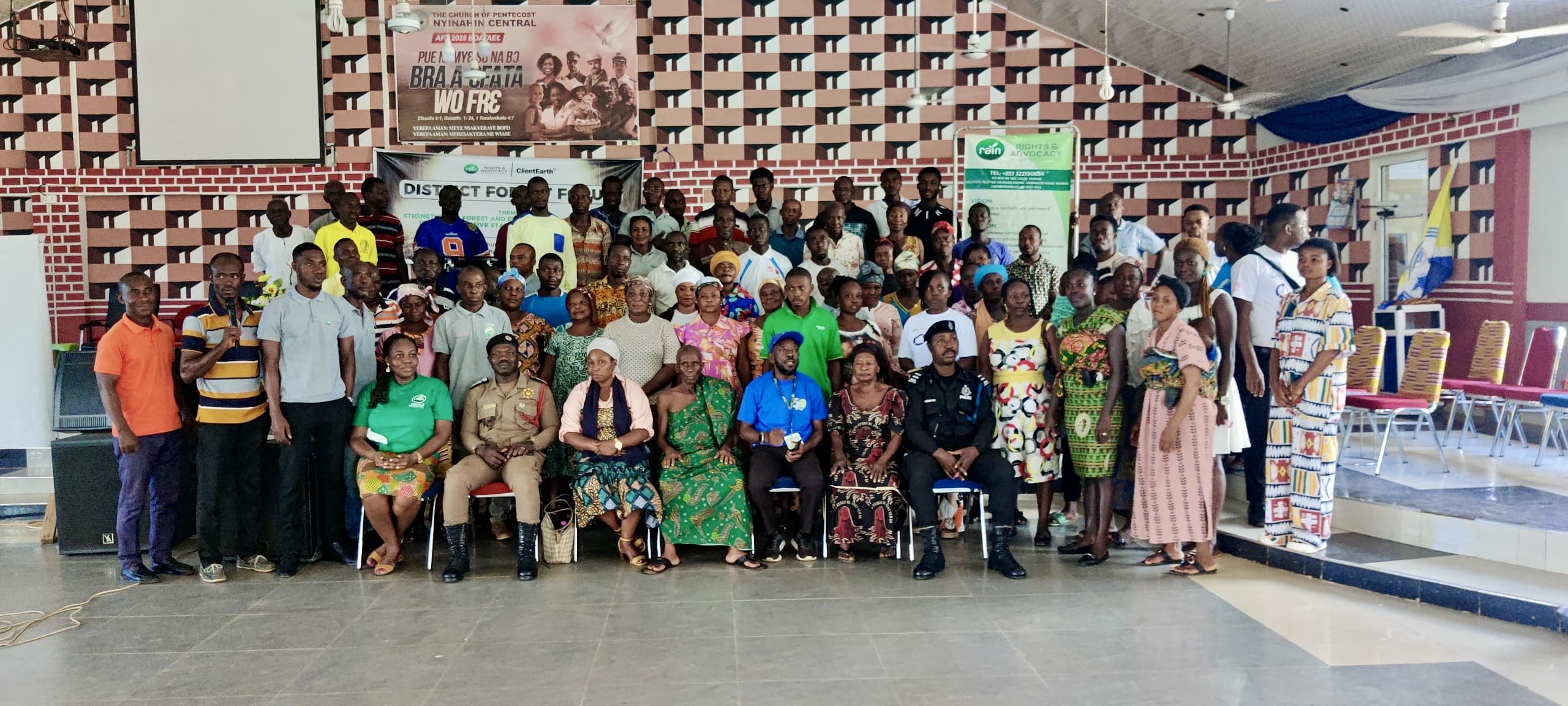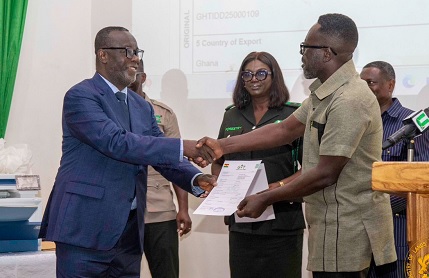Rights and Advocacy Initiatives Network (RAIN) and ClientEarth in partnership with the Ashanti Region Office of the Environmental Protection Agency(EPA) commemorated the World Environmental Day 2025 with a district forest forum at Nyinahin in the Atwima Mponua District of the Ashanti Region. The forum dubbed “Strengthening forest and environmental governance through inclusive stakeholders’ participation” served as an avenue to raise awareness on environmental laws relevant to the district and build consensus on actionable strategies for the prevention, detection, and mitigation of environmental and forest-related issues.
The event held at the Church of Pentecost, Nyinahin brought together key actors—including representatives from government agencies (Environmental Protection Authority, Ghana Police Service, Ghana National Fire Service, District Assembly, Cocoa Health and Extension Division), traditional leaders, women, youth, and local communities.
Mr. Richard Boabi Soadwa, the Deputy Director of the Environmental Protection Authority (EPA), Ashanti Region emphasized that environmental protection is not limited to pollution control, but includes the preservation of wetlands, forests, wildlife, and overall ecological health. He then traced the institutional evolution of the EPA—from the Environmental Protection Council in 1974, to the EPA under Act 490 of 1994, and now to the Environmental Protection Authority under Act 1124 of 2025. This transformation empowers the Authority to enforce environmental standards through permits, inspections, sanctions, and community engagement.
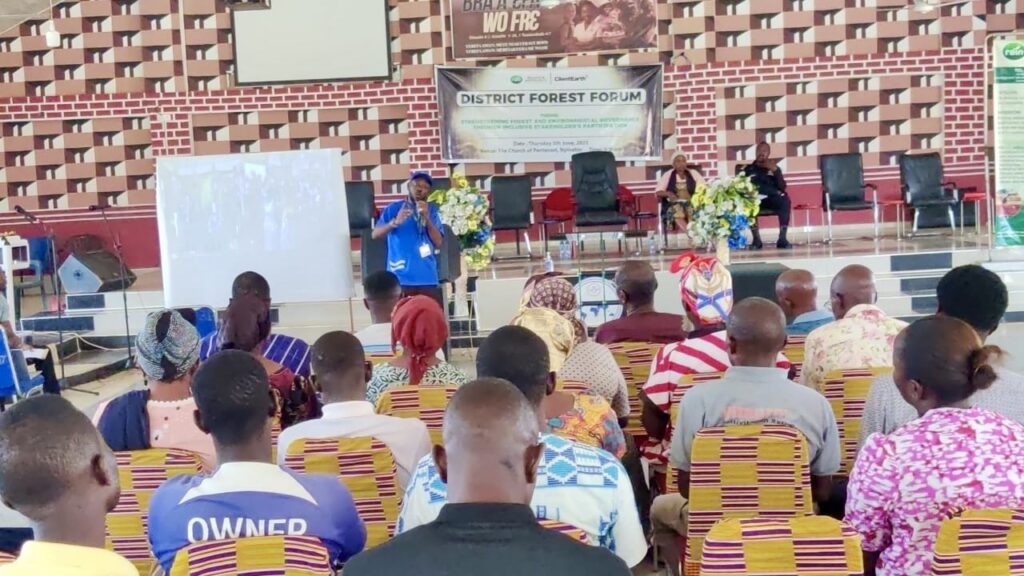
He detailed how the Environmental Protection Act, 2025 integrates climate change mitigation and adaptation strategies into national and district-level planning, provides guidelines on hazardous and electronic waste management, and regulates pesticide use and effluent discharge standards under Ghana Standards GS1212:2019, GS1236:2019, and GS1222:2018.
He cautioned strongly against the construction of buildings on wetlands, explaining that such actions compromise structural integrity and increase the risk of flooding. He also warned about the serious health risks posed by air, water, and soil pollution, and advised farmers to use pesticides with care, stressing the importance of wearing protective equipment when applying chemicals. On the issue of waste management, he urged participants to adopt segregation practices—separating plastics, organic waste, and recyclables at the source—to promote proper disposal and support local recycling initiatives.
Madam Sahadatu Ibrahim, the District Development Planning Officer, delivered a detailed presentation on the Atwima Mponua District Environmental Bye-Laws. She outlined various sections of the bye-laws, including those on forest offences, chainsaw operations, water body protection, bushfire control, and charcoal production.
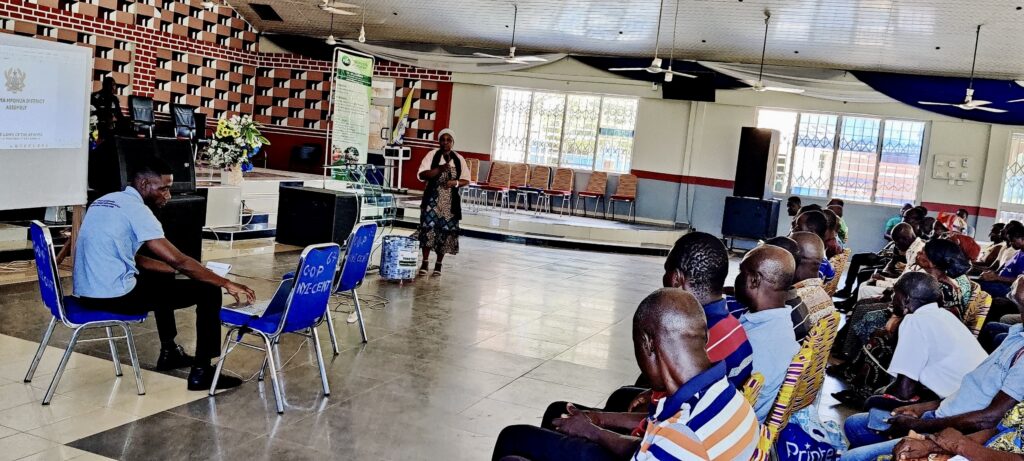
She further explained that activities such as unauthorized farming in forest reserves, lighting fires, hunting, fishing, and grazing livestock in protected areas all constitute offences punishable by fines or imprisonment. Repeat offenders could face increased penalties, including the payment of twice the commercial value of trees or produce destroyed.
Inspector Charles Twentor of the Nyinahin District Police Station—emphasized the importance of attitudinal change as a foundation for achieving environmental goals. He noted that while many laws and strategies had been discussed during the forum, their impact would only be realized if individuals took personal responsibility for protecting the environment. He urged participants to become stewards of their communities and to engage with one another respectfully and constructively to drive collective environmental action.
Mr. Simon Bonziedu, Assistant Divisional Officer I of the Nyinahin Fire Station, delivered the final address of the day. He spoke on bushfire prevention and preparedness, especially during the dry season. He emphasized that many bushfires are caused by negligence and that farmers must exercise great caution when using fire for land preparation.
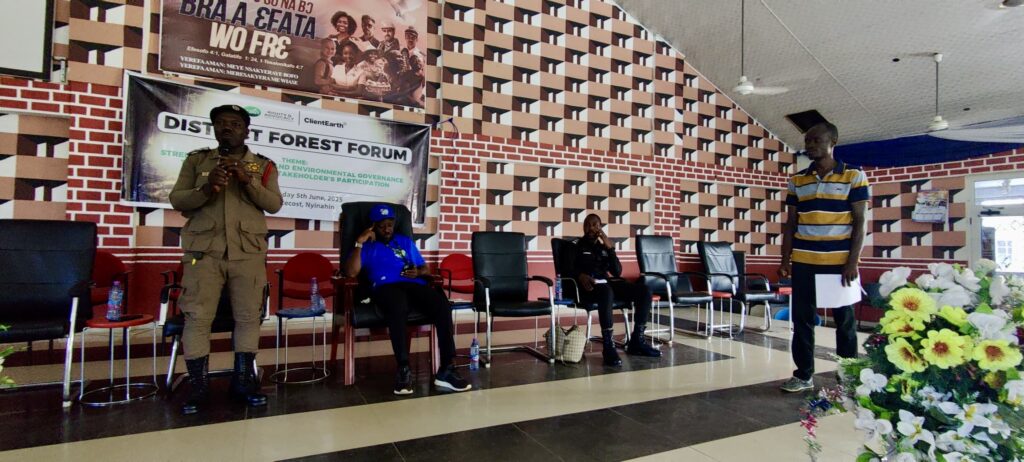
Doreen Asumang-Yeboah, the Director at Rights and Advocacy Initiatives Network (RAIN) reiterated that the purpose of the forum and the observance of World Environment Day was to remind everyone of what has been destroyed, what is still being harmed, and what actions can be taken now to reverse the damage. She urged participants to be safeguards of the environment and be involved in government-led initiatives such as “Tree for Life,” which aims to restore forests and promote tree planting nationwide.
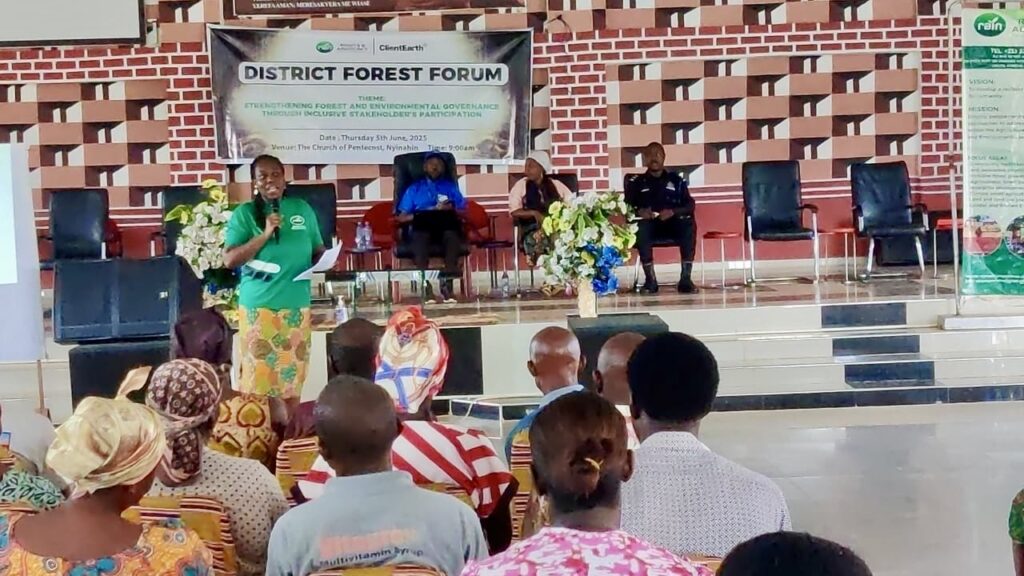
The event was climaxed with an interactive session which was designed to capture the personal commitments of participants based on the knowledge and awareness they had gained.
